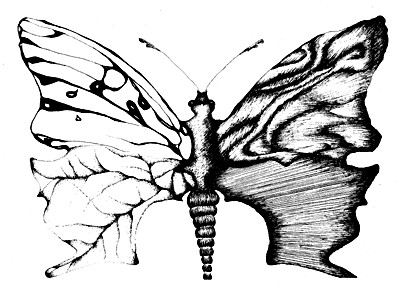All Nonfiction
- Bullying
- Books
- Academic
- Author Interviews
- Celebrity interviews
- College Articles
- College Essays
- Educator of the Year
- Heroes
- Interviews
- Memoir
- Personal Experience
- Sports
- Travel & Culture
All Opinions
- Bullying
- Current Events / Politics
- Discrimination
- Drugs / Alcohol / Smoking
- Entertainment / Celebrities
- Environment
- Love / Relationships
- Movies / Music / TV
- Pop Culture / Trends
- School / College
- Social Issues / Civics
- Spirituality / Religion
- Sports / Hobbies
All Hot Topics
- Bullying
- Community Service
- Environment
- Health
- Letters to the Editor
- Pride & Prejudice
- What Matters
- Back
Summer Guide
- Program Links
- Program Reviews
- Back
College Guide
- College Links
- College Reviews
- College Essays
- College Articles
- Back
Book Banning MAG
Oscar Wilde once said, "The books that the worldcalls immoral are the books that show the world its own shame." We live in aworld of violence, racism, and sexuality. So why are books featuring thesesubjects often considered taboo?
People try to keep certain pieces ofliterature from children for seemingly little reason. The horrors they watch onthe news, and possibly even experience, are no harsher when read in the pages ofa book. Therefore, banning any book is unnecessary, and should never be done. Oursociety is no utopia; banning books that point this out will not benefit youngscholars or our society. I agree with Oscar Wilde that no book is immoral; theimmorality lies in the world in which the book was written.
In ourcountry, banning books violates our constitutional rights. Authors have the rightto write whatever they want, and no one has the right to prevent an author's workfrom being read. When a book is banned, it is kept from its audience, which canbe considered a suppression of the author's freedom of speech. In addition, bookbanning restricts students' rights to choose what they want to read. Why do somefeel they know what others should and shouldn't be exposed to?
Individualsshould be able to travel their own path in their quest for knowledge. America isthe land of the free, and banning books is simplyunconstitutional.
Children cannot be sheltered from the world simply bybeing kept from reading about it. Profanity, violence, racism and sex are allparts of the world we live in. Children will experience these things first-handmany days of their lives. If anything, reading books that some considerunsuitable may actually help prepare children for what they will face.
Finally, reading all types of literature is important for academic growthand literacy. All titles, controversial or not, have a value to the reader. Bybanning any book, we hinder the expansion of a mind. John Steinbeck, ErnestHemingway, Ray Bradbury - all these great authors have written works that havebeen challenged. Imagine if we weren't allowed to read A Farewell to Arms, OfMice and Men, or even Fahrenheit 451? What morals, knowledge and history we wouldbe missing! Wisdom comes from learning about the good and the bad, the innocentand the profane.
Reading is an essential part of gaining knowledge andwisdom, but reading is a useless tool if it cannot be fully utilized. Banningliterature narrows students' selections, and therefore narrows their minds. Manytimes the most profane and controversial novels are the ones that have the mostto teach us.
European history tells us of a time long ago when educationwas virtually non-existent and books were rarely read. It's no wonder this periodof time is referred to as the Dark Ages.
Banning books will bring about anew Dark Age - an age where children embark on life knowing little of thehardships of the real world because they weren't allowed to read about them. Ourworld is sometimes a shameful place, and the first step in overcoming the world'sshame is to educate ourselves about its immoralities.

Similar Articles
JOIN THE DISCUSSION
This article has 1 comment.

0 articles 0 photos 12292 comments